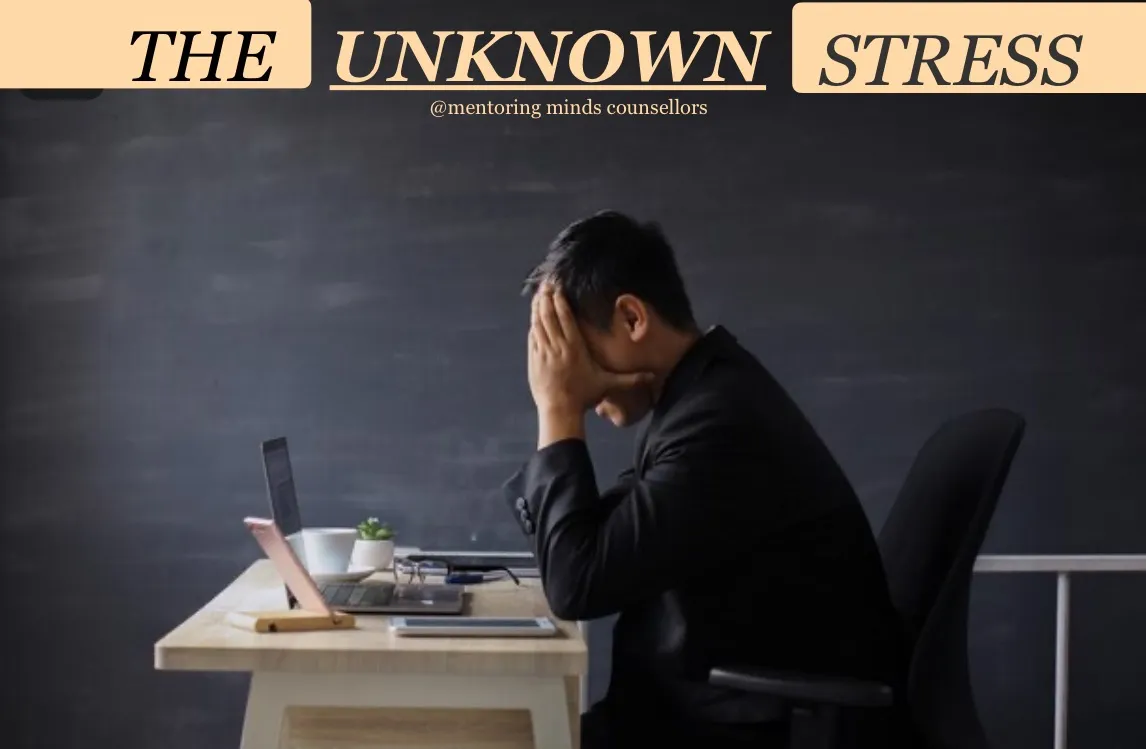Stress it’s something we all experience, yet it’s often hard to pinpoint exactly where it’s coming from. Sometimes, we feel overwhelmed without understanding why. Often, these feelings are linked to forms of stress that aren’t immediately obvious. It’s not just the big events like work deadlines or family issues that wear us down; sometimes, it’s the subtle, hidden stressors that sneak into our lives unnoticed.
1. Invisible Mental Load
We live in a world where multitasking has become second nature. We juggle work, relationships, personal goals, and daily chores all at once. But there’s a cost to this constant mental juggling. Often, we’re unaware of how much mental energy is spent just trying to keep all the balls in the air. The mental load is the invisible, ongoing responsibility of remembering everything appointments, plans, tasks. It doesn’t come with a clear deadline, and its impact can be draining, leading to burnout without us even realizing it.
2. Chronic Low-Level Anxiety
While anxiety is often associated with moments of panic, it can also show up as a low hum of discomfort that we carry around without much thought. It’s the background noise of “what ifs” and worries that linger in the back of our minds unnoticed but ever-present. This type of anxiety can make everyday situations feel more intense than they are, and if we don’t address it, it can evolve into more severe stress or even depression.
3. Social Comparison
In the age of social media, we’re constantly exposed to the highlight reels of others’ lives. It’s easy to compare ourselves our careers, relationships, or lifestyle with what we see online. While this might seem harmless at first, it creates a persistent sense of inadequacy. You might not consciously think about it, but the comparison is happening in the background, feeding stress. The need to “keep up” can lead to feelings of failure or self-doubt that aren’t always easy to identify.
4. The Pressure of Perfectionism
Many of us have high standards, whether it’s about our work, appearance, or personal achievements. The drive to be perfect can creep in gradually, disguised as ambition or a desire for success. However, this constant striving for flawlessness is a form of stress that often goes unrecognized. We can get caught in a cycle of self-criticism, always feeling like we’re falling short, even when we’re doing our best. Over time, perfectionism erodes confidence and contributes to a steady build-up of stress.
5. Environmental Stress
Sometimes, the environment around us contributes to stress without us realizing it. It could be the noise in your neighborhood, the clutter in your home, or even the color scheme in your workspace. These environmental factors can subtly affect your mood and mental state. The effects might not be immediate, but over time, living in an environment that’s overstimulating or chaotic can lead to feelings of unease, which pile up and contribute to ongoing stress.
6. Emotional Carrying
Whether it’s unresolved conflict with a friend or an ongoing family issue, emotional baggage can often be overlooked as a stressor. We may tell ourselves that we’ve “moved on” or that the issue isn’t that important, but unresolved emotions can weigh us down more than we realize. We carry those emotions subconsciously, and without proper resolution, they can affect our mood, energy levels, and even our physical health, contributing to chronic stress.
7. Physical Stress
Physical discomforts like poor posture, eye strain, or lack of sleep might seem like minor inconveniences, but they can have a big impact on your mental health. Over time, physical strain can create a feedback loop where the body’s discomfort triggers mental stress, which, in turn, causes more physical tension. The stress of not feeling physically at ease can slip under the radar, but it can definitely affect your overall sense of well-being.
8. The Stress of Not Knowing
Sometimes, the unknown itself is a source of stress. The uncertainty of the future, not knowing whether things will improve or if you’re on the right path, can create a deep sense of unease. This type of stress is particularly hard to address because it’s not tied to any one event or issue. It’s simply the discomfort of not having control over the future. When we’re unsure about our next steps, or when we feel unprepared for what’s coming, it can cause anxiety without us realizing where it’s coming from.
The Final Word
In conclusion, we at Mentoring Minds Counsellors understand that stress often operates in the background of our lives, hidden behind everyday experiences or unconscious thoughts. By being more mindful of the subtle stressors, we can begin to address them before they turn into something larger. Recognizing unknown stress is the first step toward managing it and ultimately, creating a more balanced, peaceful life.


Leave a Comment